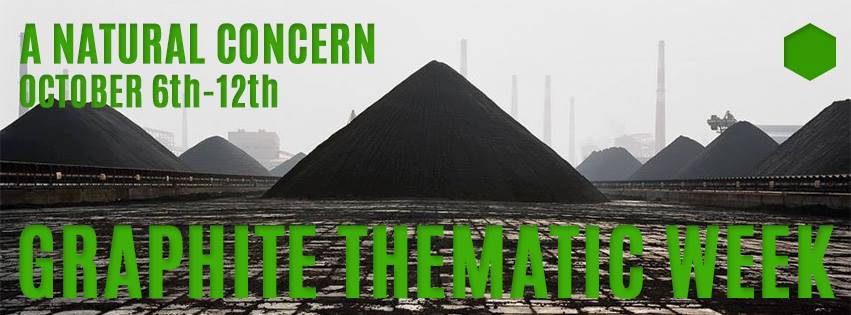What is inevitable, and what is not?
What can we control, and what controls us?
So much of scientific enquiry is focused not just on explaining reality, but also on ultimately predicting and controlling it. This is most explicit in the natural sciences. In the hands of the physicist we are made to question such basic qualities of the human felt experience as time, light, heat and energy (to name a few). Einstein’s affirmation of the importance of “imagination” is not simply meant to be provocative, nor is it meant as a respite for the less mathematically minded (where mathematics is mistakenly labeled as uncreative, unimaginative) – it speaks to fact that in the hands of the scientist reality becomes a feat of the imagination.
But far from being a process of imagining an alternate reality, the power of the natural sciences in allowing us to explain, predict and control our actual “felt” reality appears to be one of the defining characteristics of our present. In the midst of a historical analysis that seems to emphasize circularity (of ideas, violence, revolution), the changes in our ability to control the physical world to suit our needs and desires presents itself as an exception. It is hard not to see our current ability to control the physical world as a “development”, as historical “progress”.
Yet inseparable from this development in the human’s mastery of the physical world comes a particular interest in the human itself as a physical being – and the birth of psychology as an independent domain of scientific enquiry (approx. 1879).[1] And with this I want to clarify why I have thus far conflated my use of the term “reality” with “the physical world”. I do not want to suggest that the question of how the human mind relates causally to the “external world” is a new one (far from it); nor that empirical science leaves no space for the possibility of a non-physical reality (on the contrary, the polemics of Richard Dawkins against religion, in the name of empirical science, undermines itself when taken to the extreme of a “belief” in the “truth” of natural evolution). No – what I want to emphasize is the following:
That as we continue to develop our ability to observe, predict and control our material existence, how life itself should be understood as a physical force remains not only unanswered but almost un-asked in the natural sciences. To be precise, I refer to the following questions –
- What functional role does “feeling” (consciousness, will) play in the physiology of the human?[2]
- Does “feeling”, “human will”, have a role alongside the fundamental forces (gravity, electromagnetic force, and the strong and weak nuclear forces)?
- Is it possible to give an evolutionary fitness account of why we “feel” (does “feeling” help us survive)?
- And, if we adopt a purely materialist understanding of how mind relates to matter (where every felt state finds its correlate in the physical), are we not faced with a determinism that puts into crisis the concept of human agency?
That these questions may seem naïve is indicative of their perceptiveness, but not necessarily of their importance. Which leads me slowly to the point of this discussion -
If we look to where and by whom these questions have been most explicitly asked we find that it is often within the realm of the supernatural or the religious - yet they have had their day as “serious” questions open to empirical investigation. Alan Turing[3] was one to ask such questions in the 50s, and his outdated theories on telepathy now stand in stark contrast to the rigor of his seminal works in mathematics, computer science and artificial intelligence. And to stay with artificial intelligence, questions on the functional role of feeling in physical systems is asked today in the fields of cognitive science[4]. The question of how the mind comes to play a role in affecting the physical world is one of the oldest, and it continues to elude us. In fact, the consensus now within the “scientific” community is that there is almost no evidence that the mind (“feeling”, “will”) does have a (physical) causal role that can be empirically observed; or that it is a necessary part of how humans (and living organisms in general) function at the physiological/psychological level. It is therefore something of a closed open question - attempts to answer it through empirical observation have so far been futile, and it has somewhat been set aside.
Yet looking beyond the natural sciences I come across another kind of science that I believe has also asked this question, although less explicitly, perhaps with more urgency – political science (and political economy).
I began this discussion with a reference to the “progress” that we have made in controlling nature to suit our needs, and ensure our survival, and in this vein I turn to a thinker who was acutely aware of this development, and questioned its implications for the human lived experience and the way in which we work. In fact, when we keep in mind the question of the functionality of feeling, what stands out in Karl Marx’s analysis of contemporary commodity production is how the factory worker in particular (although it is true of wage labor in general) is made to labour so that his activity becomes more akin to the workings of an arbitrary physical force than to a willful expression of a creative human faculty. The early “socialist” thinkers had at the heart of their political/social visions an understanding of the human as having a nature that found fulfillment in particular kinds of activity – most importantly in a diverse range of “creative” work[5]. It is a particular understanding of human nature that Marx comes back to in his criticisms of the Capitalist mode of production, and its implications for the lived experience of the worker. And in this way we come to the following irony, that is also the promised “point” of this whole discussion:
- That in developing our capacity to control and shape the physical world, to mold nature to suit our immediate needs, our own human nature seems to have become not just forgotten, but almost ignored, and at some level opposed to these developments. Beyond just repeating the Marxist argument about the ills of Capitalism as a system of production and its associated political forms, I want to emphasize that at the heart of this criticism is the question of how to understand the human as a physical force, and why it should be treated (employed) differently.
One of the promises of psychology according to B. F. Skinner is to develop an understanding of behavior that can bridge the gap between the advances made in the natural sciences and the still backward humanities (philosophy, politics, history)[6]. Acknowledging that art expresses itself in extremes, Clockwork Orange and George Orwell’s 1984 speak some truth against this Behaviorist approach – yet I think that for “psychology” to really establish itself as an “independent” science, it must start speaking to the way in which we associate politically. Our study of the human brain, and how we have employed this study, has so far served what I see as distinctly “Capitalist” needs – there is a focus on numbing of pain, survival for its own sake, categorization (think of mental hospitals and the judicial system), and what I see as an ingrained materialistic determinism about our role in shaping who we can become (exacerbated I think by the treating of mental illness with drugs)[7].
It is time for psychology to recognize that as a science of the brain it is a science of life also, and (in a return to its philosophical roots) it should serve the dual role of an empirical but also normative science. Addressing this question of the functionality of feeling is one way to start, not because its answer is necessarily valuable, but because the questions that it forces us to ask along the way challenge the very form of material existence that was the catalyst to the birth of psychology as an independent field of study – capitalist production and the exponential growth of our mastery over the physical.
Can psychology expound concepts such as “freedom” – what does it “look like” to be free from a psychological perspective?
Is there any truth to the socialist critique of capitalist production on the grounds of its antagonism to a certain “human nature”?
And of course, what is “human nature”? What kind of work (survival) is most “optimal”, most in “synchrony” with, and ultimately most “fulfilling” of this nature?
There is therefore an illuminating paradox in this whole discussion – to speak of “human nature” as an inevitability of the human condition, it is in recognizing the inevitable that we can genuinely start to assert our agency in progressive ways. Why I began with the two questions: What is inevitable? What is controllable? Should now become apparent. It seems that to assert our control we have to recognize what has control over us - and most importantly what inevitably has control over us – for this is the natural justice that is the promise of a society that is in harmony with our nature.
[1] Usually dated to the founding of Wundt’s psychological laboratory at Leipzig University in 1879. [2] For more on this discussion see http://turingc.blogspot.ca/2012/06/stevan-harnad-howwhy-explaining-causal.html [3] The British mathematician philosopher who helped break the Enigma code during WW2, now known for laying the foundations of modern computer science and artificial intelligence. (1912-1954) [4] See Steven Harnad, “The Mind/Body Problem is the Feeling/Function Problem”, 2001 http://webcache.googleusercontent.com/search?q=cache:http://www.ecs.soton.ac.uk/~harnad/Tp/dennett-chalmers.htm [5] See Charles Fourier [6] See the Introduction to Beyond Freedom and Dignity [7] See the following paper on addiction and free will for an ex. http://www.ncbi.nlm.nih.gov/pmc/articles/PMC2757759/
* Cover Photo courtesy of ML Wood







